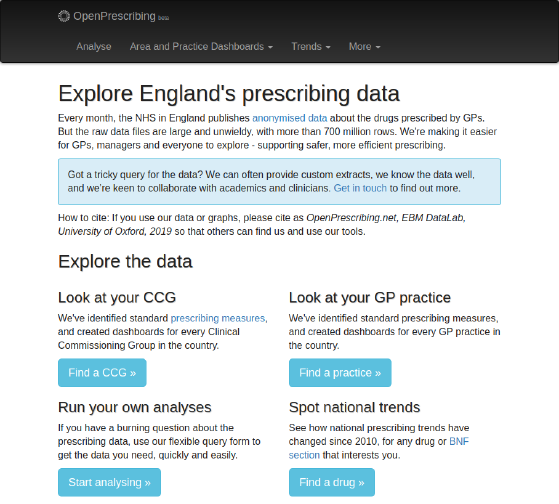OpenPrescribing
Latest blog posts
Latest papers
-
Educational interventions delivered to prescribing advisers to influence primary care prescribing: a very low-cost pragmatic randomised trial using routine data from OpenPrescribing.net
A low cost randomised trial of an educational intervention in CCGs to influence prescribing of low-priority items
- Status
- Preprint
Categories
- OpenPrescribing
-
Data-driven identification of potentially successful intervention implementations: a proof of concept using five years of opioid prescribing data from over 7000 practices in England
By applying one of our existing analysis tools to a national dataset, we were able to rank NHS organisations by reduction in opioid prescribing rates. Highly ranked organisations are candidates for further qualitative research into intervention design and implementation.
- Status
- Preprint
Categories
- OpenPrescribing
-
Data-Driven Identification of Unusual Prescribing Behavior: Analysis and Use of an Interactive Data Tool Using 6 Months of Primary Care Data From 6500 Practices in England
Data-driven approaches have the potential to overcome existing biases with regard to the planning and execution of audits, interventions, and policy making within NHS organizations, potentially revealing new targets for improved health care service delivery.
Categories
- OpenPrescribing
-
Identifying Patterns of Clinical Interest in Clinicians' Treatment Preferences: Hypothesis-free Data Science Approach to Prioritizing Prescribing Outliers for Clinical Review
A new method for prioritizing prescribing outliers for clinical review with discussion of two illustrative examples of anti-psychotics
Categories
- OpenPrescribing






